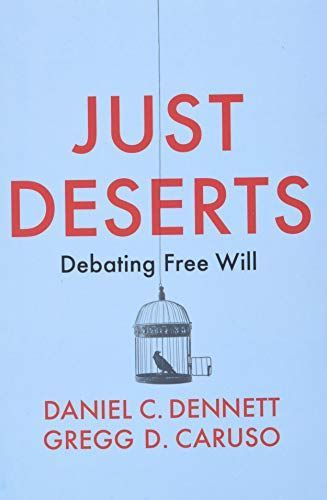
Just Deserts Debating Free Will
Some thinkers argue that our best scientific theories about the world prove that free will is an illusion. Others disagree. The concept of free will is profoundly important to our self-understanding, our interpersonal relationships, and our moral and legal practices. If it turns out that no one is ever free and morally responsible, what would that mean for society, morality, meaning, and the law? Just Deserts brings together two philosophers – Daniel C. Dennett and Gregg D. Caruso – to debate their respective views on free will, moral responsibility, and legal punishment. In three extended conversations, Dennett and Caruso present their arguments for and against the existence of free will and debate their implications. Dennett argues that the kind of free will required for moral responsibility is compatible with determinism – for him, self-control is key; we are not responsible for becoming responsible, but are responsible for staying responsible, for keeping would-be puppeteers at bay. Caruso takes the opposite view, arguing that who we are and what we do is ultimately the result of factors beyond our control, and because of this we are never morally responsible for our actions in the sense that would make us truly deserving of blame and praise, punishment and reward. These two leading thinkers introduce the concepts central to the debate about free will and moral responsibility by way of an entertaining, rigorous and sometimes heated philosophical dialogue. What emerges is a clear account of the latest thinking on free will, and what is at stake for our moral and legal practices.